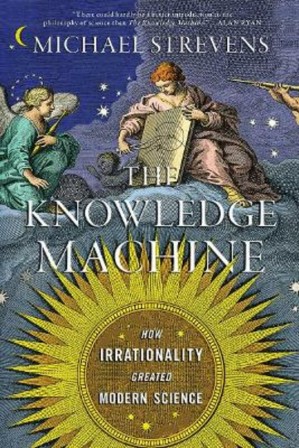The Knowledge Machine: How Irrationality Created Modern Science

By Michael Strevens
Liveright, 2020
During the seventeenth-century Scientific Revolution, a small handful of radical thinkers, among them Francis Bacon and Isaac Newton, hit upon a way of investigating the mysteries of the natural world – the motions of the planets, the behavior of gases, the inner springs of the human body – that would come to reveal the underlying principles that govern matter and mind. The Knowledge Machine asks what these thinkers, the first modern scientists, did differently, and why their innovations came so late in the course of human history. Challenging the conventional regard for science as a paragon of logic, The Knowledge Machine demonstrates that the invention of modern science required not more but less rationality. By willfully ignoring religion, aesthetic beauty, and especially philosophy, scientists embraced an unreasonably narrow method of inquiry, whose very narrowness channeled unprecedented energy into observation and experiment. The same force has driven the success of science ever since.
“The Knowledge Machine is the most stunningly illuminating book of the last several decades regarding the all-important scientific enterprise.” —Rebecca Newberger Goldstein, author of Plato at the Googleplex
A paradigm-shifting work, The Knowledge Machine revolutionizes our understanding of the origins and structure of science.
• Why is science so powerful?
• Why did it take so long—two thousand years after the invention of philosophy and mathematics—for the human race to start using science to learn the secrets of the universe?
“With a mixture of philosophical and historical argument, and written in an engrossing style” (Alan Ryan), The Knowledge Machine provides captivating portraits of some of the greatest luminaries in science’s history, including Isaac Newton, the chief architect of modern science and its foundational theories of motion and gravitation; William Whewell, perhaps the greatest philosopher-scientist of the early nineteenth century; and Murray Gell-Mann, discoverer of the quark. Today, Strevens argues, in the face of threats from a changing climate and global pandemics, the idiosyncratic but highly effective scientific knowledge machine must be protected from politicians, commercial interests, and even scientists themselves who seek to open it up, to make it less narrow and more rational—and thus to undermine its devotedly empirical search for truth.
Cont’d.
LINK:
http://strevens.org/scientia/